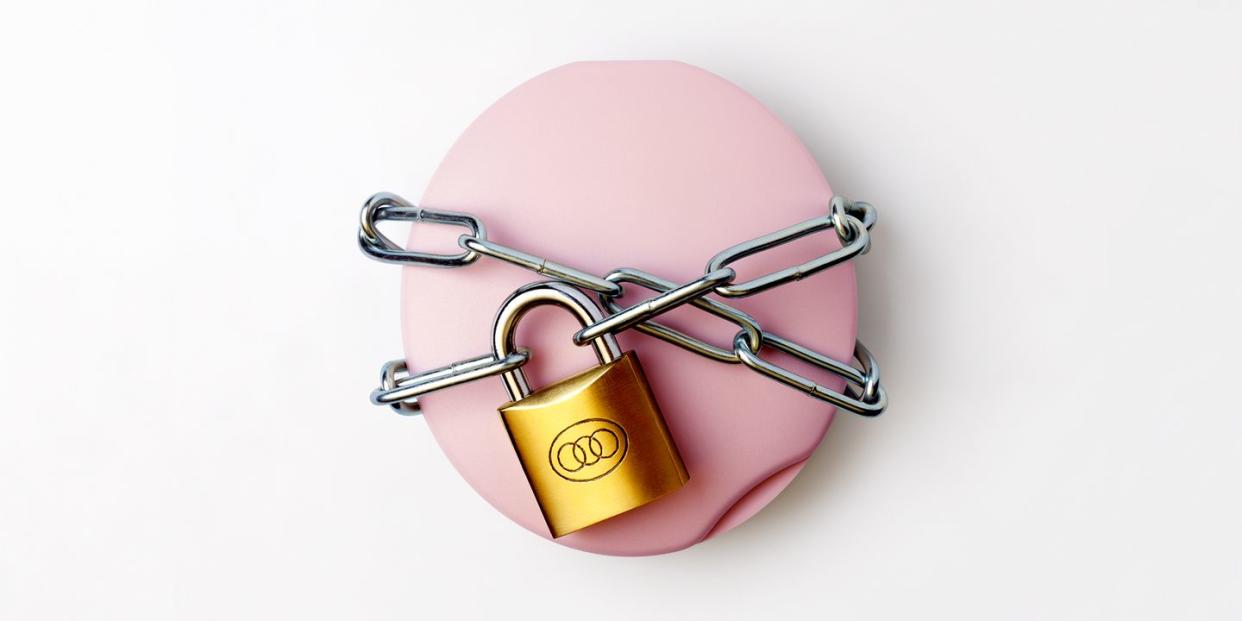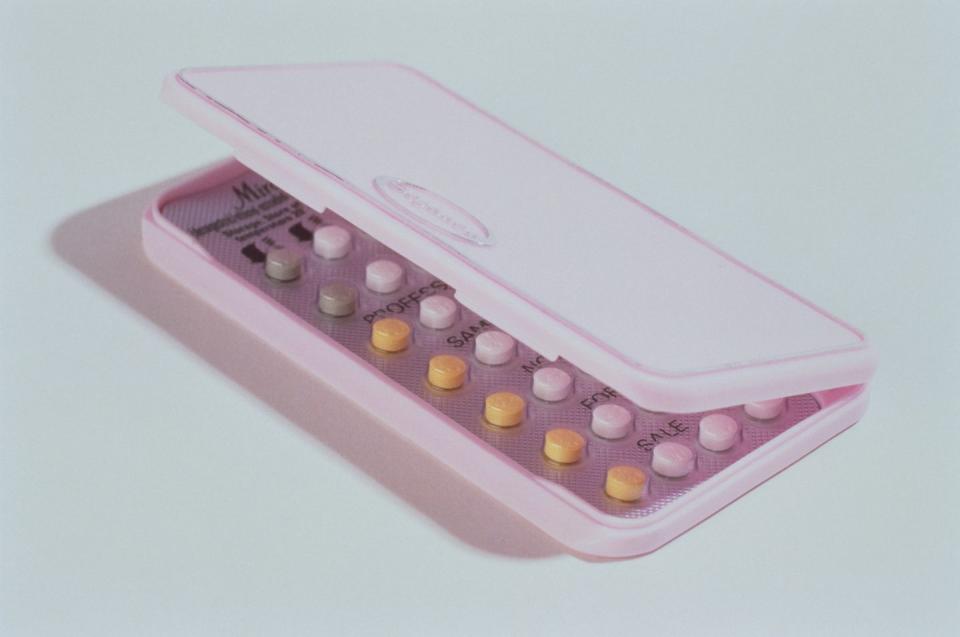60 Years Ago, We Got the Pill. Today, We're Still Fighting to Keep It.

I don’t remember the first time I learned about birth control. I do remember that I started taking the Pill in college, and I didn’t stop until I was ready to have children. For more than two decades, birth control was just there, a daily part of my life that I didn’t have to think much about.
My generation was the first to be raised with the idea of gender and racial equality, and birth control factored into that. My mother—who was a breadwinner, and a proud agitator for racial equity in the workplace and community—raised my three sisters and me to think about the world in an intersectional way, long before Kimberlé Crenshaw coined the term. We built our lives on the principle of bodily autonomy, knowing that each generation before us had laid the foundation we now stood on as we reached for glass ceilings.
May 9 marks 60 years since the FDA approved the first birth control pill. And while that moment was a catalyst, none of what has happened since was preordained. The FDA didn’t change everything—people who believed in reproductive freedom fought for every inch, making sure birth control was legal, accessible, and affordable.
In 1961, a year after the Pill had been approved, it was still illegal in some states to distribute it. Estelle Griswold, then the executive director of the Planned Parenthood League of Connecticut, and C. Lee Buxton, the clinic’s medical director, deliberately broke the law to hand it out anyway. Their case went all the way to the Supreme Court, ending in a ruling that legalized birth control for married women. In 1972, the Court extended that right to unmarried women. But legal doesn’t mean accessible—if you can’t afford contraception, you can’t access it. So Planned Parenthood and others fought tooth and nail to ensure the Affordable Care Act covered birth control without a copay, saving women $1.4 billion in just one year.
To some, it might look like we’ve won the birth control fight. Today, 9 in 10 women in the U.S. use contraception at some point in their lives, and the benefits are clear: Women with access to birth control are more likely to enter college and less likely to drop out. In fact, a 2012 study by the University of Michigan found that one-third of all wage gains women have made since 1960 are the direct result of contraception. So while women, and especially women of color, are still paid less than their male counterparts, access to birth control is an important tool for closing that gap. As so many people go through economic hardship in the COVID-19 era, access to birth control is even more urgent.
But birth control is much bigger than a tool for women’s economic empowerment. It is a shield for women in abusive relationships. It is medicine for women with endometriosis and other uterine conditions, often preserving their ability to have children in the future. It is how we regulate our periods in a world that does not have time for women’s pain. It is how some trans and nonbinary people minimize gender dysphoria. And for these reasons and others, birth control—in all its forms, from the Pill to the IUD—should be free and easily available for every person who wants it. It is just that important.
Yet, in 2018, there were an estimated 28 million people in the U.S. under age 65 who did not have health insurance—nearly 500,000 more than in 2017—and who therefore didn’t have access to free birth control. A disproportionate number are women of color. Making matters worse, half of all U.S. counties don’t have a single ob-gyn.
Somehow, for all the ways we’ve shown that access to birth control improves women’s lives, it still feels like we are swimming against a tide of politicians intent on punishing women for having sex. Even as we mark this anniversary, even as we all weather the COVID-19 pandemic, the people in power are actively working to take away the basic health care on which so many women rely.
The Trump administration seems to be doing everything in its power to make it harder to access birth control. It took direct aim at Title X, the only national program dedicated to providing affordable birth control and other kinds of reproductive health care, like testing and treatment for sexually transmitted infections. The administration put in place a “gag rule” that prevents health-care providers who participate in Title X from telling their patients where they can access abortion—which is against ethical standards, as it calls for withholding information from patients. This rule prompted one in four health centers to withdraw from the program; as a result, an estimated 1.6 million fewer people—all low-income and uninsured or underinsured—are getting reproductive health care.
Access to birth control has been targeted in other ways, too. The administration reinstated federal Medicaid funding in Texas, even though the state blocks patients from going to Planned Parenthood health centers for preventive care because the centers also provide abortion. It is possible other states controlled by politicians who oppose safe and legal abortion will follow suit, despite the fact that the discriminatory Hyde Amendment already bars federal funds from covering almost all abortions for people who rely on Medicaid. Barring certain providers means that even more people won’t be able to get birth control, cancer screenings, and STI testing and treatment from the provider they trust.

And soon the Supreme Court will rule on Trump v. Pennsylvania, a case that could expand virtually all employers’ ability to refuse to cover birth control for their employees, not only on religious grounds but on “moral” considerations. Meaning if your boss—or the administration of the university you attend—doesn’t think you should have sex if you’re not married, he or she might be able to simply take birth control coverage out of your health insurance plan.
In no other area of health care do we see such a coordinated political attack on a successful breakthrough medication. It’s damaging to public health and disastrous for real people.
Birth control is part of health care, just like abortion. For most of our history, women’s reproductive destinies have been the concern of and controlled by men. Six decades ago, we began taking that power back, one little pill at a time. The ability to decide whether and when to have children allows women to live full, healthy lives and to control their destinies. Nothing makes certain politicians angrier.
So we keep fighting, on many fronts. In the courts and in the statehouse, where policy makers decide who can access this basic health care and who cannot. On the ground, where more than 600 Planned Parenthood health centers provide expert, high-quality care. And, increasingly, on people’s phones via the Planned Parenthood Direct app, where a patient’s distance from a health center isn’t an issue.
Sixty years from now, I hope that every person can walk into a local drugstore and pick up birth control for free and without a prescription. I hope patients will be able to visit their doctor’s office and get an IUD or contraceptive implant, without charge, that same day. I hope there are new kinds of 100 percent effective birth control, because we have invested in the tools people need to have the power to control their own bodies and lives.
Most of all, I hope that we prepare my daughters’ generation to fiercely defend their own freedom. I have two girls, ages 8 and 11, and I know this centuries-long fight over women’s bodies will not be won by the time they grow up. All I can do is shore up the foundation we have laid, and hope they can reach higher than their grandmother or their mother could ever dream.
This story originally appeared in the June/July 2020 issue of ELLE.
You Might Also Like

